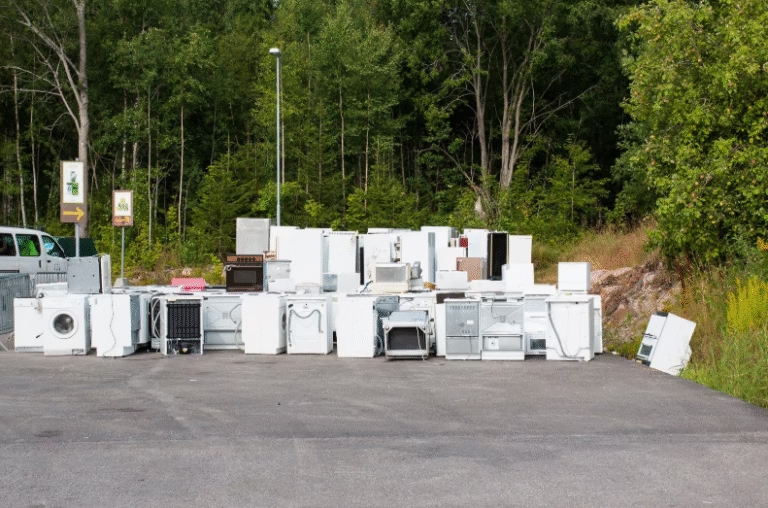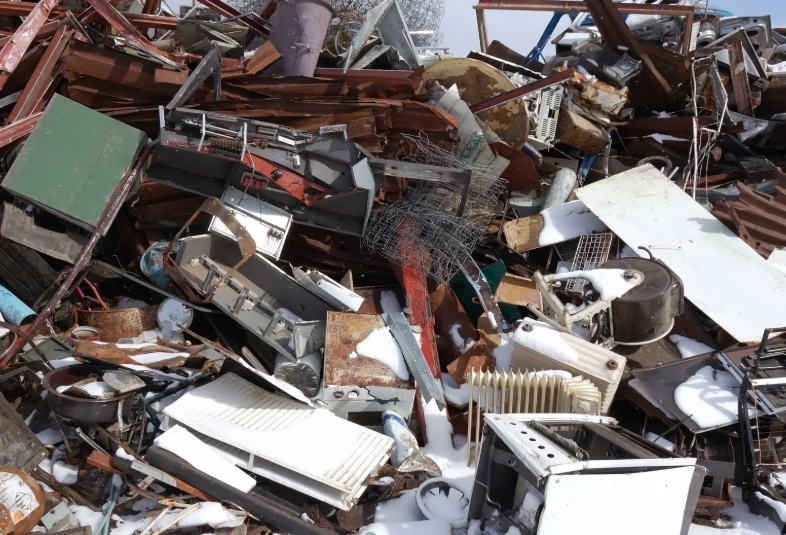What to Do with Your Old Electronics: A Complete Guide
Our lives are increasingly intertwined with technology. From smartphones and laptops to old televisions and gaming consoles, electronics have become a cornerstone of modern existence. However, with the ever-evolving nature of technology, we are frequently faced with the dilemma of what to do with our old devices. Whether they’re outdated, broken, or simply no longer needed, getting rid of old electronics can be tricky. But fret not – this guide will take you through the best and most responsible ways to dispose of, recycle, and repurpose your unwanted electronics.
Understanding the Impact of E-Waste
Before diving into the “how-to” of dealing with old electronics, it’s crucial to understand the significance of electronic waste, or e-waste, and its potential impact on the environment. E-waste comprises discarded electronic devices like computers, phones, televisions, and any other electronics that have reached the end of their useful life. The volume of e-waste generated globally is staggering, with millions of tons piling up every year.
Unfortunately, improperly disposed of e-waste can lead to harmful effects on the environment. Electronics often contain hazardous materials such as lead, mercury, and cadmium, which can contaminate soil and water when left in landfills. Additionally, the valuable metals and minerals used in the production of electronics are often wasted when these devices aren’t recycled correctly. With this in mind, it’s critical to approach the disposal of old electronics with a sense of responsibility.

Assess Your Electronics' Condition
Before you make any decisions about getting rid of your old electronics, take some time to assess their condition. Not all electronics need to be thrown away. Some might still have value, whether for resale, donation, or repurposing. Here are a few key points to consider:
- Working condition: Does the device still function? If it does, it might be worth reselling or donating.
- Age: Older models might not be as useful to others, but they could still be recycled for parts.
- Repairability: Is it worth trying to fix? Sometimes, a broken device can be restored, extending its life and reducing the need for disposal.
By evaluating these factors, you can make a more informed decision about how to proceed.
Resell or Donate Working Electronics
If your device is still functional, there are several ways you can put it to good use rather than sending it to a landfill.
Reselling Electronics
Reselling is a great option for working electronics, as it allows others to use them while giving you a bit of extra cash. Many platforms can help you find buyers for your old devices. Some popular ones include: eBay: Perfect for electronics of all kinds, whether they’re in excellent condition or have a few minor issues. You can auction them off or sell them at a fixed price. Craigslist and Facebook Marketplace: Great for local selling. If you’re looking to get rid of an item quickly, these platforms can help you find nearby buyers.
Specialized Electronics Sites: Websites like Gazelle, Decluttr, and Swappa focus on buying old electronics. They might not offer top dollar, but they provide an easy and convenient process for selling items like phones, tablets, and laptops. When reselling, make sure to wipe your device clean of personal data. Factory reset smartphones, computers, and any device that contains sensitive information before handing it over.
Donating Electronics
If you’re not interested in reselling, donating your old electronics can benefit a number of people or organizations. Nonprofits, schools, and local charities often accept working electronics, especially if they are in good condition. Here are a few places to consider donating to:
- Local Schools: Many schools are always looking for electronics, whether it’s for classroom use or computer labs.
- Nonprofits: Charitable organizations like Goodwill, Salvation Army, and Habitat for Humanity may accept donations of working electronics.
- Electronics Recycling Programs: Some programs offer to pick up old devices and refurbish them for those in need.
Donating your electronics ensures they are put to good use while reducing waste. Make sure to check with the organization ahead of time to ensure they accept the type of electronics you want to donate.
Repair and Repurpose
Sometimes, your old electronics might not be worth reselling or donating, but they can still serve a useful purpose. If you’re inclined to tinker with technology, consider repurposing your old devices for a new function.
- Transform a Laptop into a Home Server: If your laptop is no longer fast enough for daily tasks, consider turning it into a home server. You can use it to host a website, create a media center, or set up cloud storage.
- Old Phones as Security Cameras: With apps available to turn your old smartphones into security cameras, they can provide an extra layer of security around your home or office.
- Use Parts for DIY Projects: If you’re into electronics and crafting, many parts of old electronics – such as circuit boards, screens, and batteries – can be repurposed into fun and creative DIY projects.
Repurposing electronics might require some technical know-how, but it’s a sustainable and rewarding way to breathe new life into devices that would otherwise gather dust.
Recycle Your Electronics
If your device is beyond repair, has no resale value, and cannot be donated, the next step is recycling. Recycling old electronics is the most eco-friendly way to dispose of e-waste, and it ensures that valuable materials are recovered rather than wasted.
Finding a Responsible E-Waste Recycler
When recycling, it’s essential to choose a reputable e-waste recycler that adheres to responsible recycling practices. Look for recyclers certified by the Responsible Recycling (R2) or e-Stewards programs. These certifications ensure that the recycler adheres to strict standards for environmental and social responsibility.
Many communities also have local electronic recycling events, where you can drop off your old electronics. These events are often held in collaboration with local governments or environmental organizations, making it easier to dispose of your e-waste responsibly.
Benefits of Recycling Electronics
Recycling old electronics provides several benefits:
- Reducing pollution: By recycling electronics, we help prevent the harmful chemicals in e-waste from leaching into the environment.
- Recovering valuable materials: Electronics contain precious metals like gold, silver, and copper, which can be extracted and reused in new devices.
- Conserving resources: Recycling reduces the need for mining new materials, conserving natural resources.
What Can Be Recycled?
Not all electronics are created equal when it comes to recycling. Generally, the following items can be recycled:
- Mobile phones: These often contain valuable metals and are recyclable in a variety of ways.
- Laptops and desktops: Their components, such as motherboards, RAM, and hard drives, can be extracted and reused.
- Monitors and televisions: These can be recycled for parts, though larger items may require special handling.
- Batteries: Many electronics contain rechargeable batteries that can be properly disposed of at designated e-waste recycling locations.
Properly Dispose of Non-Recyclable Electronics
Not all electronics are recyclable. Items such as certain types of old cables or electronic accessories may not be accepted by most recycling programs. In these cases, you’ll want to find a proper disposal method that aligns with local regulations.
Some tips for proper disposal include:
- Check with local waste management: Contact your local waste management facility to find out if they accept non-recyclable electronics.
- Landfill bans: In many areas, electronics are banned from landfills. Be sure to follow local disposal guidelines to stay compliant with regulations.
Upcycle or Sell Parts
If your electronics can’t be fully repaired or recycled, it’s possible to salvage usable parts from them. This is a great option if you’re handy with tools and want to repurpose smaller components.
Hard drives: If you’ve upgraded your old computer, don’t throw away the hard drive! It can be reused as external storage or dismantled for parts.
Batteries: Some batteries, especially lithium-ion ones, can be repurposed for other devices, though it’s crucial to be cautious about handling them safely.
Conclusion
Old electronics no longer need to be a burden on your home or the environment. Whether you choose to resell, donate, repair, recycle, or repurpose, there are numerous ways to give your outdated devices a second life. Each method not only reduces the amount of e-waste but also benefits others or contributes to sustainability efforts.
If you ever find yourself with old electronics you can’t manage alone or don’t know how to handle, reach out to a professional. Wee Haul Junk, based in Vienna, offers expert electronic disposal and junk removal services. For more information, feel free to call 571-489-2961 or email info@weehaulnow.com. They can help take the stress out of getting rid of your old electronics in a responsible and eco-friendly manner.




